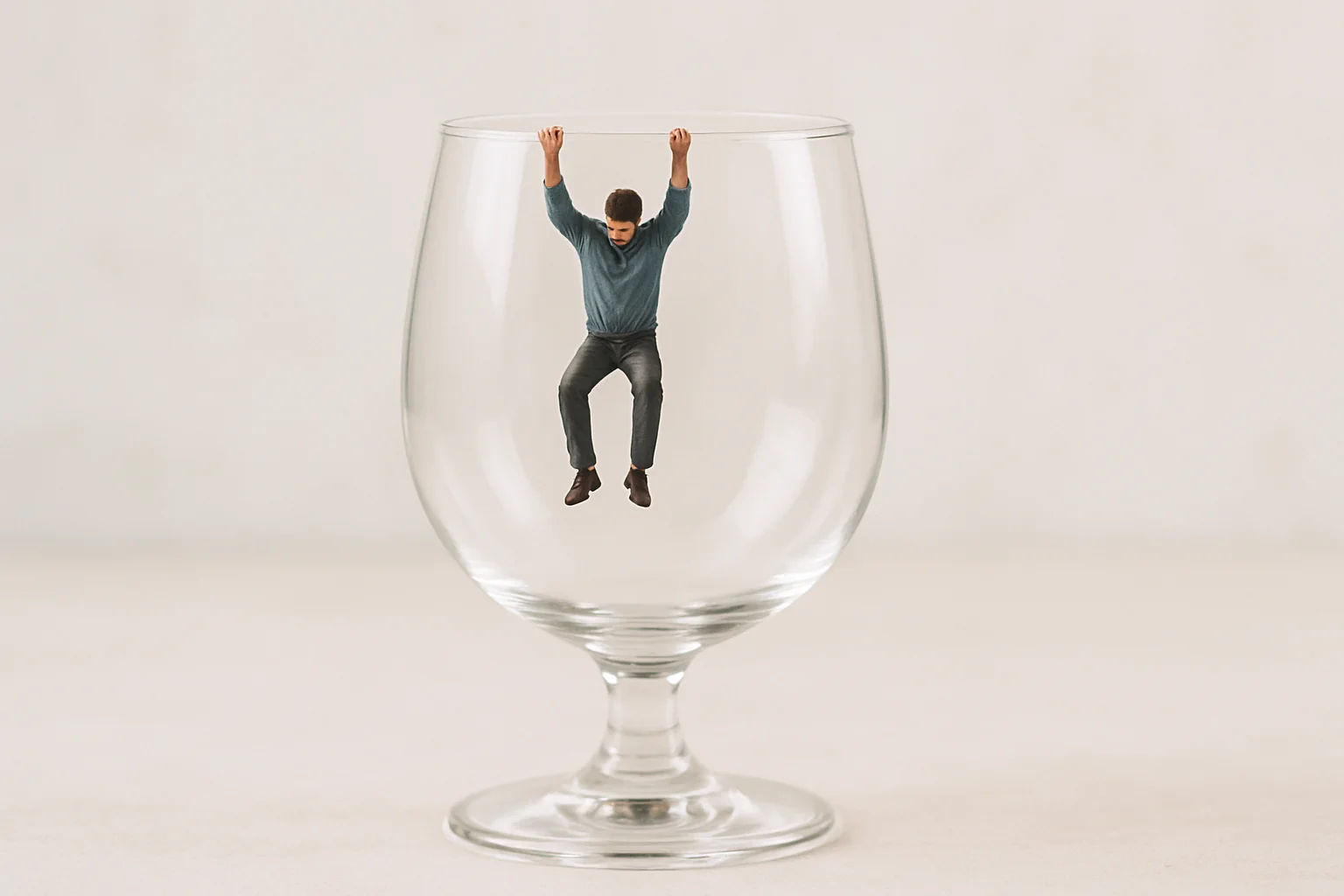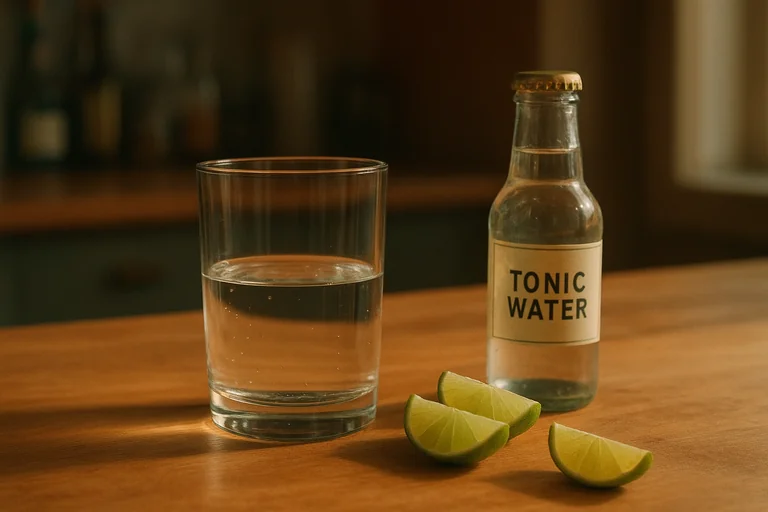A 2 minute assessment to get a personalized mental health or alcohol recovery plan.
You may be a chronic drinker and don’t even know it.
What You’ll Discover:
- What is considered chronic drinking today.
- Why the definition of chronic drinking is changing.
- Why many people are chronic drinkers without realizing it.
- How to control chronic drinking at any level.
If you have misunderstandings and misconceptions about what chronic drinking is, that’s understandable. Even well known organizations like the National Institute on Alcohol Abuse and Alcoholism (NIAAA) have misclassified what chronic drinking is exactly.
The primary misconception about chronic drinking is that it’s tied to the amount of alcohol consumption and whether a person exceeds the limits of what is considered heavy drinking. However, this perspective has shifted in recent years as we learn more about alcohol’s effect on the brain and body, even when it’s consumed in low or moderate amounts on a regular basis.
What Truly Classifies as Chronic Drinking
The definition of chronic alcohol use is transitioning, and it’s technically not an official term in the DSM-5 (Diagnostic and Statistical Manual of Mental Disorders, Fifth Edition). Up until recently, from a clinical standpoint, chronic drinking referred to a persistent pattern of alcohol use that exceeds recommended limits over an extended period.
Now the latter part of that definition is being dropped. Many researchers and doctors now define chronic drinking as simply a consistent pattern of alcohol use regardless of the amount of alcohol that’s consumed.
Within that framework, a person would be considered a chronic drinker if they have just one glass of wine or beer with dinner every night - even though that amount is under the limit of what’s considered heavy drinking. In other words, now chronic drinking does not equate to heavy drinking.
There are many people who actually qualify as chronic drinkers under the new understanding of what chronic alcohol consumption is. Even someone who only has one or two drinks a week or even a few drinks a month can be a chronic drinker if they are consuming alcohol on a regular basis.
NEED TO KNOW: Heavy drinking is defined as more than 14 drinks per week for men and more than 7 drinks per week for women.
Why We’re Rethinking the Idea of Chronic Drinking
As with many health-related issues, new information can bring about changes in how we classify and treat certain conditions. That’s the case with chronic drinking.
New research has revealed that even low to moderate drinking can affect the brain if it’s done on a regular basis.
It’s been known for some time that heavy alcohol consumption can lead to neurodegeneration, which is the degeneration of the nervous system. With alcohol consumption the neurons are heavily impacted.
Now with better tools and techniques for studying the brain, researchers have discovered that even consuming seven drinks a week can cause neural degeneration. But more importantly, consuming even fewer drinks can impact brain function directly.
Alcohol is water soluble and fat soluble. Because of this, it can easily bypass the brain-blood barrier and pass into any cell. This is why it has such a profound effect on brain function while consuming alcohol and long afte
What’s most concerning about chronic drinking is its effect on impulse control and inhibition, even at low levels. Alcohol affects areas of the prefrontal cortex that are associated with suppression of impulses through GABA neurotransmitters that facilitate top-down inhibition control for thoughts and behaviors.
Essentially, alcohol causes the prefrontal cortex to shut down and people can’t suppress impulsive behavior as well. Alcohol also shuts down parts of the brain that are related to flexible behavior, particularly impacting a person’s ability to think through doing one thing or another. That is why judgement is one of the first things to go when you’re drinking and people have less impulse control and inhibition.
This is obvious while someone is drinking, but brain studies have shown that alcohol consumption can have lasting effects on the prefrontal cortex and the brain circuitry that control impulses and habitual behavior.
The more you chronically drink the more pronounced the changes to the neural circuits become, even if the amount of alcohol consumed is low to moderate. It will make the person more impulsive even when they aren’t drinking, negatively impacting judgement and decision making.
The takeaway is that even if you drink alcohol just once or twice a week regularly, that regularity can rewire your brain and have negative effects on top-down inhibition and impulse control all the time.
The good news is the effects on impulse control and inhibition are reversible. If you cease drinking for a period of time your brain will recover and return to its baseline. If you are a low to moderate chronic drinker your brain should fully recover after 2-6 months of abstaining. However, if you are a heavy drinker for prolonged periods it will take longer to recover and restore the prefrontal cortex.
Chronic Drinking Isn’t Always an Alcohol Use Disorder... But It Does Have Negative Consequences
Clearly, some chronic drinking doesn’t meet the criteria of an alcohol use disorder (AUD). But just because it isn’t a full-blown AUD that doesn’t mean there aren’t consequences for drinking alcohol on a regular basis.
In addition to the brain changes noted above, every drink that’s consumed is processed by the body, which can be hard on some organs. Over time the effects can add up. That is why, even though some studies show that low to moderate drinking can have limited health benefits, the negative consequences offset those benefits. Now, it’s known that no drinking is overall healthier than low to moderate drinking.
Let’s look at an example. Imagine that you attend a weekly happy hour where you consume three alcoholic beverages. It’s the only time each week that you drink, so you typically have just three drinks a week. That’s nowhere near the heavy drinking limit, however, this type of moderate alcohol consumption can still increase the risk of developing some types of cancers and can result in liver cirrhosis.
Another key consideration is that you can be a binge drinker while still falling below the threshold of heavy drinking. Not only can this cause health problems over the long-term, there are also immediate dangers connected with alcohol impairment in the moment.
NEED TO KNOW: Alcohol Use Disorder (AUD) is characterized by an impaired ability to stop or control alcohol use despite adverse social, occupational, or health consequences.
If you’re concerned your alcohol consumption habits have become chronic or you want to maximize your impulse control and inhibition, taking a break from drinking is a solution. Need help curbing consumption? Learn more about how Naltrexone works to lower cravings.




